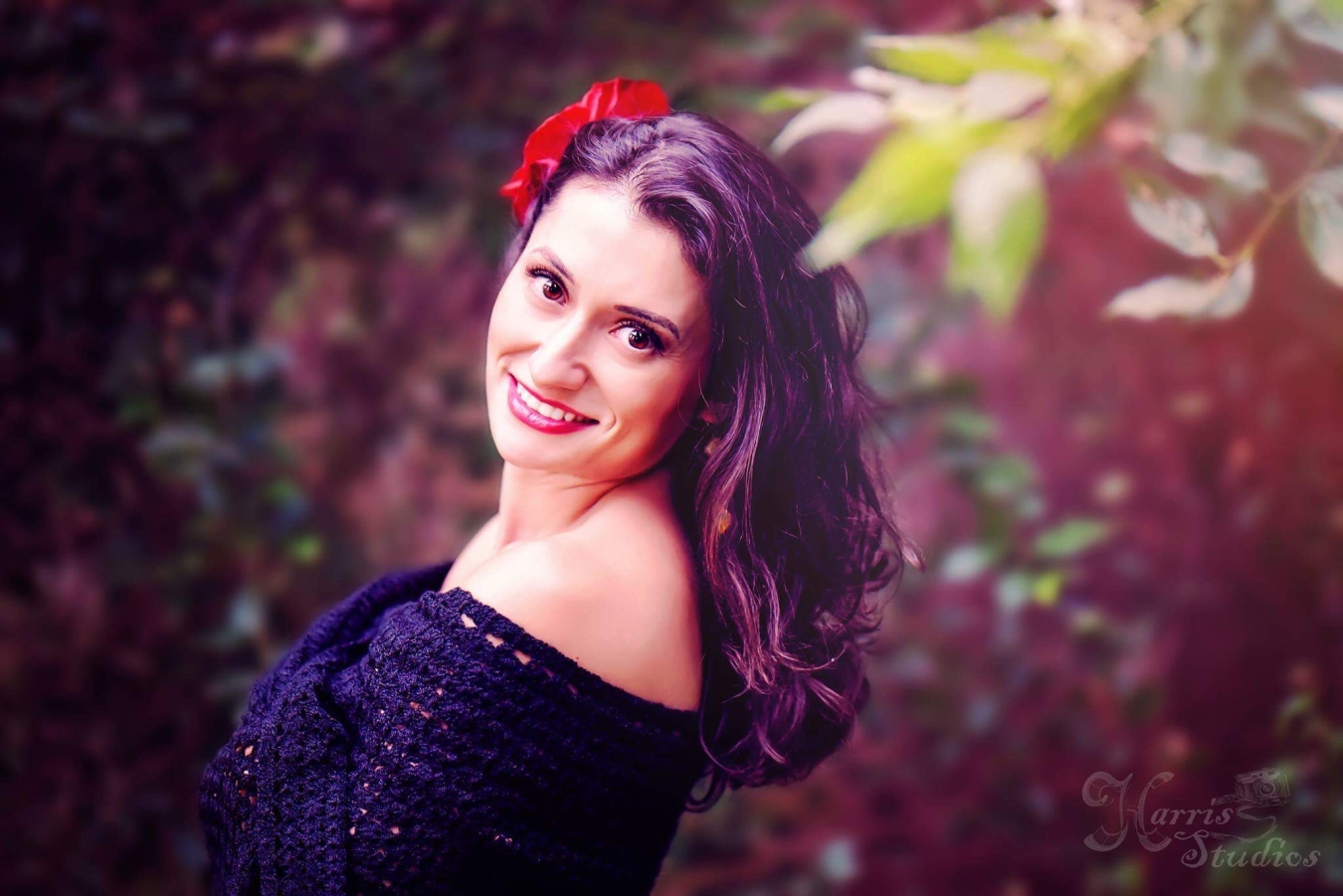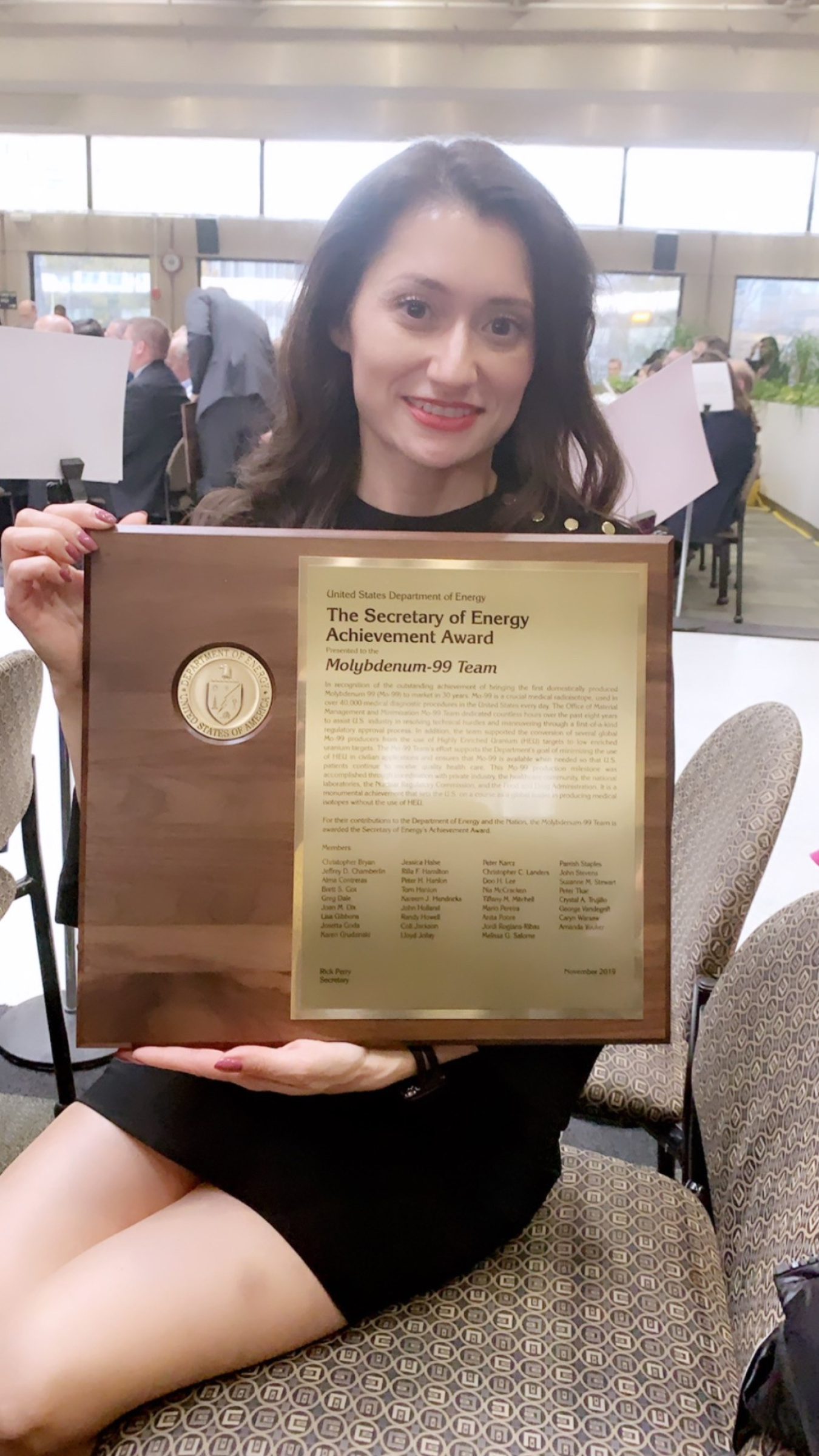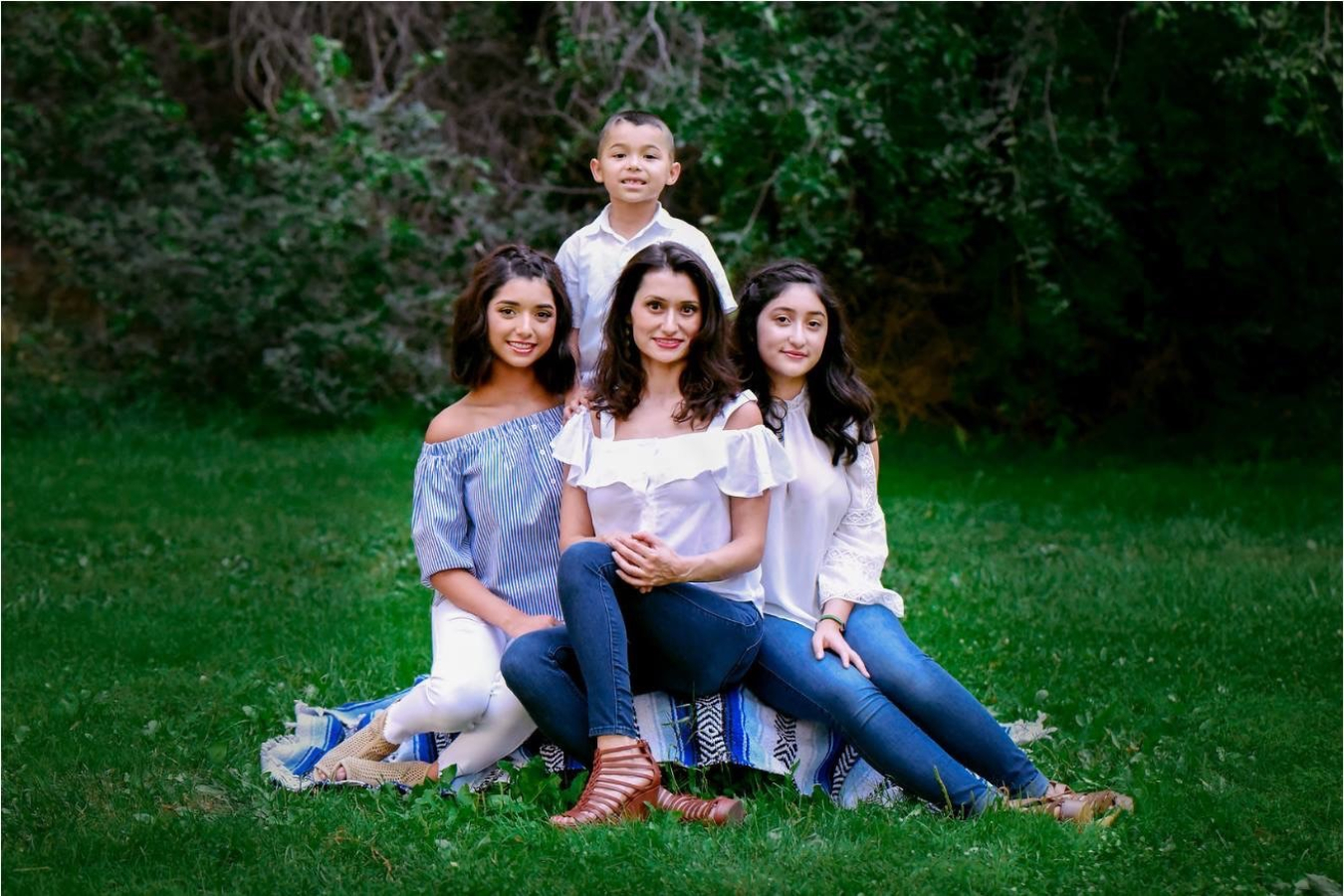Happy Hispanic Heritage Month! Today we celebrate Alma Contreras, a first-generation college grad who went on to work at the Hanford site, and now leads #NNSA’s non-nuclear components program management office.
National Nuclear Security Administration
October 13, 2022
Happy Hispanic Heritage Month! Today we celebrate Alma Contreras, a first-generation college grad who went on to work at the Hanford site, and now leads #NNSA’s non-nuclear components program management office. She talks about the power of going above and beyond when given the opportunity, and the work ethic passed down from her parents who came to the United States as immigrants from Mexico.
What is your cultural background? Where did you grow up? Are you bilingual?
My parents are from Mexico and moved to the United States in the 1970s. I am a first-generation U.S. Citizen born and raised in Eastern Washington State. We spoke Spanish in our home growing up, but I have lots of older siblings who spoke English, so I learned English and Spanish at the same time. I don’t hear an accent when I speak English, but many people tell me I have one!
How do you support NNSA?
I lead the Program Management Office for the Non-Nuclear Components federal program office. Our mission is to ensure enduring capabilities which support the non-nuclear component lifecycle and enable stockpile sustainment and modernization.
How did you become interested in the field you are in? How did you end up on this career path?
I was the first person in my family to graduate college. I had to work while attending school and I was lucky enough to receive an internship at the Hanford site during my undergrad at Washington State University. The internship was in the Hanford Infrastructure Reliability Program. It was at a time of constant budget cuts in DOE Environmental Management, and it seems that each year we had to do more work with less people. I had a great boss and mentor who would allow me to “help” with all that work, and I was given increasing responsibilities and became involved in program management work above and beyond what was typical for an intern. I credit my work ethic that I learned from my parents. They taught me to work hard and always offer to help. This allowed me to step in and to take on more tasks while also learning more about how to run a program. I learned about earned value, complex program scheduling, budgeting, estimating, and the federal budget cycle.

What’s one of your favorite things about working at NNSA?
It’s hard to pick just one. I would say first and foremost, it is the mission. There are few opportunities to do work where one is making the world a better and safer place every single day. Making a better world is very important to me, and a great motivator for me to work extra hard. I believe that if I show up and do my best every single day, I am doing what I can to create a better and safer world for my children.
My other favorite thing is the people. There is so much passion and goodness in my work team. My boss is a great supervisor that empowers us all to do good work, and my teammates work really well together to help each other and put the mission first while still having fun.
What are the characteristics of the best teams you have been on?
The best teams have a strong work ethic, are creative, respectful, diverse, and believe in the mission. Work ethic is important because you need to trust that people will do what they are assigned to do. We all succeed or fail together, and everyone has to do their part. Creativity, because we have unique problems, and especially in our mission space, we can get stuck in a rut of doing things the way we have always done them. We need to find new solutions for successfully completing the mission. Respect is paramount, because people have to feel valued. Teams that know how to have fun, while respecting everyone’s humanity and differences are going to be able to collaborate more successfully. Diversity is important because we are working on really hard problems. We all need to bring our different perspectives to issues and be able to craft the best solution. We can’t afford to leave any good ideas off the table. Finally, a team that truly believes in our mission and wants us to succeed will always work hard and strive to accomplish our goals.
What advice would you give members of the Hispanic community who want to do what you do for NNSA?
Seek out opportunities, even when you might feel like you don’t belong. Learn as much as you can in everything you do. I never thought I would end up where I am now, but looking back, I can see that every single position I had, every opportunity to “help” where I raised my hand, and everything I learned along the way, was building me into the professional with the abilities I would need to do this job. Also, keep going. I know that things can get hard. I had times where it seemed like school should be my lowest priority because I needed a “real” job and to support my family, but I’m so grateful for my mentors along the way who encouraged me to stick it out.
How will you celebrate Hispanic Heritage Month?
I feel like I celebrate this all year long. I always try to represent my Mexican roots with dignity and pride. This year, I also got the opportunity to share a bit about my background with my work group. And, although it’s not technically in Hispanic Heritage Month, one of my favorite celebrations is Día De Los Muertos because my family always gets together to honor my father who passed in 2011.
What leader or cultural figure would you like to recognize this month?
Cesar Chávez has always been an inspiration to me. He worked so hard, at great personal sacrifice, to fight for the people, like my parents, who often didn’t have a voice to fight for themselves. He has improved the lives of countless farm workers, many of them immigrants.
What do you like to do in your spare time?
I like to travel, dance, cook, lift weights, hike, and hang out with my children. My favorite place to be is at the beach, so we try to go there as much as possible.


